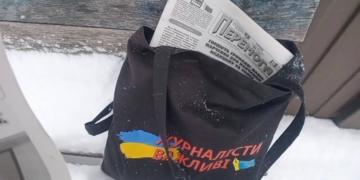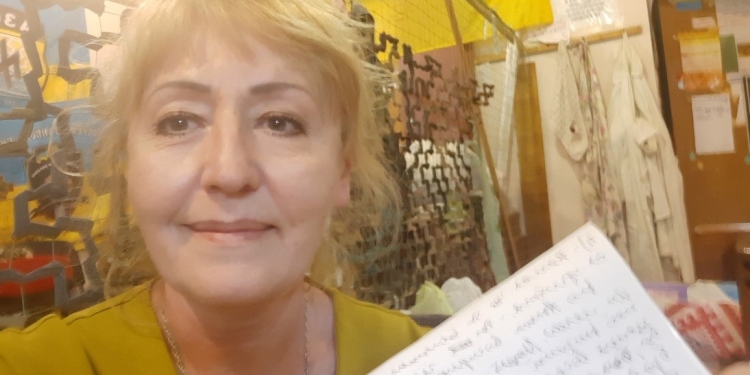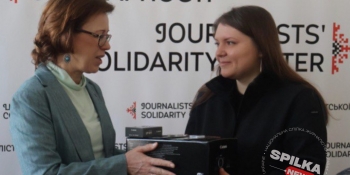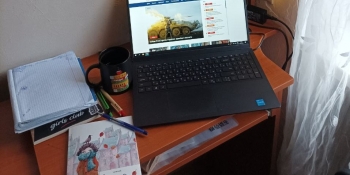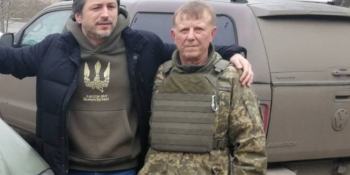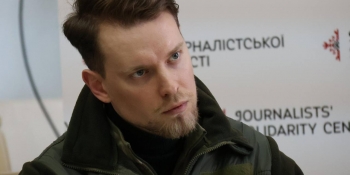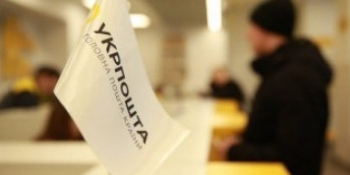Kharkiv journalist Vitalina Zinkivska lived under shelling in her native Kharkiv for 45 days. In the very first days of the war, she started volunteering: weaving camouflage nets, sorting humanitarian aid for soldiers. So, probably, it could have continued until the very victory if the journalist’s health had not failed from the daily stress. Vitalina told journalists of the National Union of Journalists of Ukraine (NUJU) about stranger’s car, rescuing children, heart attack and “network hub.”
Vitalina Zinkivska devoted 27 years of her life to journalism. For a long time, she worked as a correspondent of Ukrainian Radio in Kharkiv, and for the last two years, she had held the position of a leading specialist in the content quality monitoring department of the National Television and Radio Company. That work (since 2014) did not prevent the journalist from helping the Armed Forces.
It was from a volunteer acquaintance that Vitalina got to know about the beginning of the war. To say that she was shocked by what she heard is an understatement.
At that time, the journalist lived in an apartment with her husband, daughter, son-in-law and grandson. And all of them, when she was woken up by an acquaintance, were already on their feet. They were shaking from shock and fear, Russian fighter jets were circling over the house, and the family decided not to wake their mother up.
It was almost impossible to get out of the center of Kharkiv, where Vitalina’s house was located at that time. The city came to a standstill in traffic jams. And walking to the railway station was extremely dangerous. Vitalina and her family had the opportunity to escape from the city only on the third day of the war.
Vitalina calmed down more or less when her children and grandson were already safe. She plunged into volunteering, because the management of the National Television and Radio Company stopped working for obvious reasons. The weaving of camouflage nets was reassuring – even during massive missile attacks on Kharkiv.

45 days passed under shelling and with weaving nets. And one day, Vitalina’s heart could not stand it – she had a heart attack, and the ambulance could not come to the call, because doctors were saving the wounded around the clock after endless shelling. The journalist understood: it’s time to think about her own life.
Kharkiv residents did not manage to get used to a peaceful life right away, because every loud sound was perceived as enemy shelling.
In May, the journalist’s son, a famous Kharkiv artist Hamlet Zinkivskyi, decided to return to Kharkiv, where he joined the volunteer battalion. The mother let her son go with tears in her eyes.

At her new place, Vitalina made a lot of friends, thanks to whom she was finally able to start working again in July. In addition, the team of the Ivano-Frankivsk Journalist Solidarity Center helped arrange financial assistance from the NUJU, as well as provided the necessary products and school supplies for Vitalina’s grandson. The woman also found like-minded people she is volunteering with.
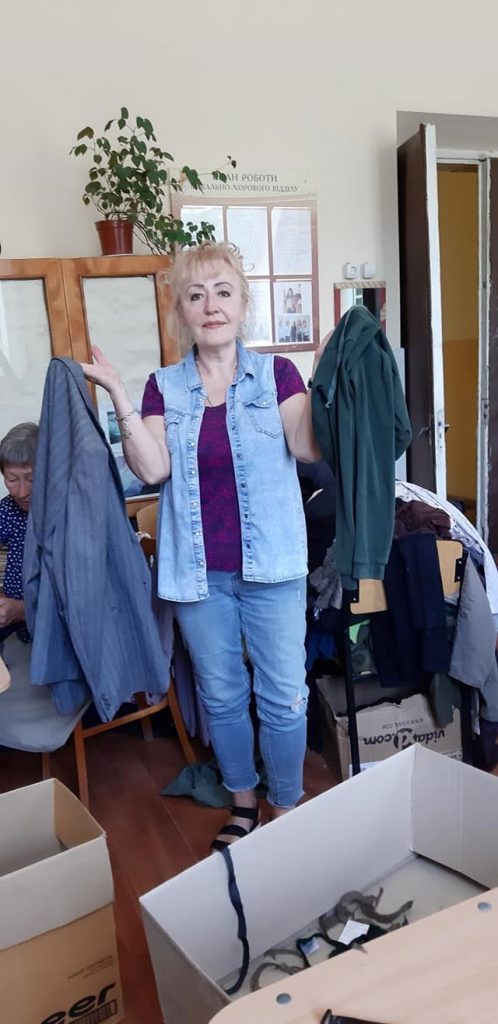
Despite her love for the wonderful and hospitable Ivano-Frankivsk, Vitalina’s biggest dream is to return to her hometown Kharkiv.
JOURNALISTS ARE IMPORTANT. Stories of Life and Work in Conditions of War is a series of materials prepared by the team of the National Union of Journalists of Ukraine (NUJU) with the support of the Swedish human rights organization Civil Rights Defenders.





